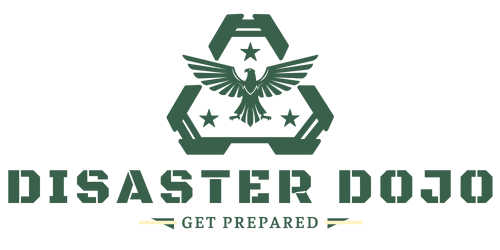In the world of prepping, it’s essential to be prepared for any scenario that may come your way. However, when it comes to ensuring the safety and well-being of individuals with food allergies, there are additional considerations that need to be taken into account. From understanding potential allergens to creating allergy-friendly meal plans, this article delves into the essential aspects to consider when it comes to food allergies in prepping. So, whether you’re a seasoned prepper or just starting out, read on to discover how to navigate the world of prepping while keeping food allergies in mind.
Considerations for Food Allergies in Prepping
Understanding Food Allergies
Food allergies can be a serious and potentially life-threatening condition affecting millions of people around the world. For those with food allergies, their immune systems react negatively to certain proteins found in certain foods. It is crucial to understand the basics of food allergies before diving into the world of prepping to ensure the safety and well-being of everyone involved.
Prevalence of Food Allergies
Food allergies are becoming increasingly common nowadays. In the United States alone, it is estimated that about 32 million people have food allergies, which equates to roughly 10% of the population. The prevalence of food allergies is not limited to a particular age group or demographic, as anyone can develop an allergy at any time in their lives. It is essential to be aware of this growing issue and take it seriously when preparing food for yourself or others.
Common Food Allergens
Various foods can trigger allergies, but there are eight common food allergens that account for the majority of allergic reactions. These allergens include milk, eggs, fish, shellfish, tree nuts, peanuts, wheat, and soy. It is important to be familiar with these allergens and be cautious when selecting ingredients, as they may be present in a wide range of food products. Always read labels carefully and be diligent in avoiding these allergens to prevent any adverse reactions.
Cross-Contamination Risks
Cross-contamination is a significant concern when it comes to food allergies. This occurs when allergenic proteins are unintentionally transferred from one food to another, potentially exposing an allergic individual to the allergen. It is crucial to practice proper food handling techniques, such as using separate utensils, cutting boards, and preparation surfaces for allergen-free foods. This can help minimize the risk of cross-contamination and keep everyone safe.
Importance of Label Reading
When prepping for individuals with food allergies, reading product labels becomes paramount. Manufacturers are required to disclose the presence of common allergens in their products, making it easier for consumers to identify potential allergens. Be sure to carefully read ingredient lists and allergen warnings to eliminate any risk in your prepping. Remember, even trace amounts of allergens can trigger severe reactions, so diligence in label reading is crucial.
Alternative Food Options
To cater to individuals with food allergies, it is essential to be aware of alternative food options that can serve as safe alternatives to allergenic ingredients. For instance, nut allergies may require substituting almond flour with alternative flours like coconut or rice flour. Soy allergies may require using alternative protein sources such as beans or lentils. By researching and exploring alternative options, you can provide safe and enjoyable prepping experiences for individuals with allergies.
Creating a Safe Prepping Environment
Ensuring a safe prepping environment for individuals with food allergies involves more than just selecting allergen-free ingredients. It also involves proper kitchen hygiene, equipment cleaning, and understanding cross-contact risks. Designate separate utensils, cutting boards, and storage containers for allergen-free foods to avoid cross-contamination. Regularly sanitize surfaces and equipment to minimize the risk of allergen exposure. These simple steps can go a long way in creating a safe environment for prepping.
Emergency Preparedness Kits for Allergies
In emergency situations, having an allergy-friendly emergency preparedness kit is essential. This kit should include non-perishable foods that are safe for individuals with food allergies, such as allergen-free granola bars, canned fruits, and vegetable snacks. Additionally, it is essential to include vital medications, such as epinephrine auto-injectors, for individuals with severe allergies. Keeping emergency kits updated and easily accessible ensures that individuals with food allergies are prepared for unforeseen circumstances.
Educating Others on Allergies
Educating others about food allergies is crucial, as it helps raise awareness and promotes a more inclusive and understanding community. Share information about food allergies and the potential risks they pose, especially when it comes to prepping and sharing meals. Encourage open dialogue and make sure others understand the severity of allergic reactions. By fostering a supportive and informed environment, you can ensure the safety and well-being of individuals with allergies.
Seeking Professional Advice
If you find yourself in doubt or have concerns regarding food allergies and prepping, it is always wise to seek professional advice. Consulting with a healthcare professional or a dietitian specializing in food allergies can provide valuable insights and guidance. They can help tailor your prepping practices to meet the specific needs of the allergic individuals and answer any questions you may have. Don’t hesitate to reach out for professional advice to ensure the safety of everyone involved.
In conclusion, when it comes to prepping, considering food allergies is of utmost importance. Understanding food allergies, being aware of common allergens, practicing good hygiene, reading labels diligently, and providing alternative food options are all essential steps to take. Creating a safe prepping environment, having allergy-friendly emergency preparedness kits, educating others, and seeking professional advice are equally important. By integrating these considerations into your prepping routine, you can create a safe and enjoyable experience for everyone, including those with food allergies.

